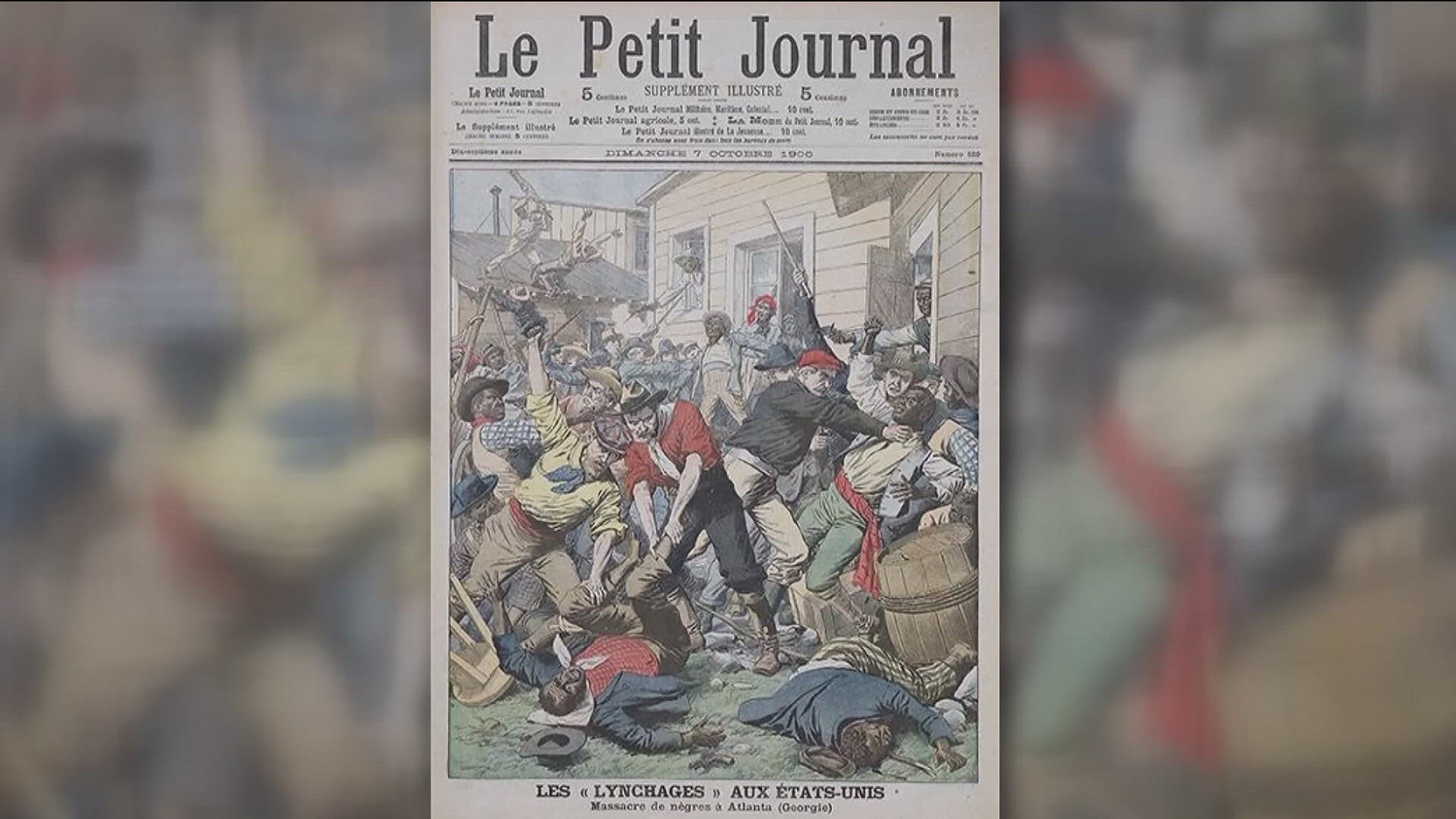ATLANTA — Two new victims will be honored as the nation marks the 117th year since one of the deadliest outbreaks of racial violence in U.S. history.
The National Center for Civil and Human Rights unveiled the names of two, previously unknown victims of the Atlanta Race Massacre on Monday. Sept. 24 marks the 117th anniversary.
The two, newly discovered victims are Marshall Carter, 13, and Stinson Ferguson, 25. The NCCHR worked with the Afro-American Historical Genealogical Society to unearth their death records. The word "riot" is seen on them.
Pastor Charles Hamilton, of New Morning Light Baptist Church, said a prayer at a vigil for the victims Monday morning.
"Their names were forgotten," Hamilton said. "And I think the one thing that you have if you don't have anything else, is your name."
At the commemoration, there was singing, and flowers were laid at the Henry Grady Statue.
"By honoring their names, we give them some sense of dignity," Hamilton said.
It's an often erased and overlooked part of Atlanta's history.
On Sep. 24, 1906, a size similar to the Jan. 6 insurrectionist of 5,000 to 10,000 white people killed at least 25 Black people- -their hatred rooted in a false report of Black men raping white women in the city's newspaper. At a press conference, a representative with AAHGS says a doctor even dispelled the possibility of rape. Attackers were carrying weapons, dragging bodies in the street, and mutilating their corpses. They were going for anyone Black or dark-skinned in sight. The massacre became one of the country's deadliest outbreaks of racial violence in history.
The vigil took place on the street where the massacre happened all those years ago.
Sylvia Johnson says she did months of research with AAHGS to learn more about the new victims via their death records.
"They were young. They had no children," Johnson said, "So, finding descendants of them is very difficult."
Carter was a student. Neither he nor Ferguson had information on next of kin or occupations. Gunshot wounds and asphyxiation are listed as their causes of death.
"It's devastating to think that such a small child could be harmed in something like this because you know they're innocent," Johnson said.
Johnson says she combed through the Georgia state archives.
"It has taken hours in the Keenan Center pouring over documents," Johnson said. "Hours in the Fulton County library."
The teaching has become a lightning rod to go against truth decay.
"A truth that seems to have been hidden for so long in the City of Atlanta," Hamilton said. "John 8:32 - And you will know the truth and the truth will set you free."
Truth and Transformation plans to make a curriculum and present it to the Department of Education.
Learn more from Emory's Georgia Civil Rights Cold Cases Project.
If you'd like to learn more, there is a new, documentary on the Atlanta Race Massacre called "(Re)-defining History." The National Center for Civil and Human Rights Museum and WABE will premiere on Friday at 6:30 p.m. Learn more here. Learn more here.

